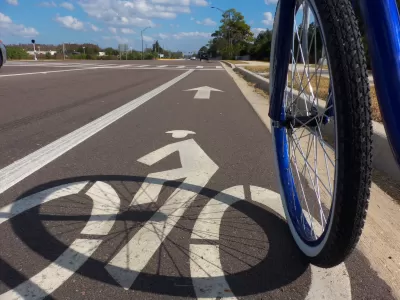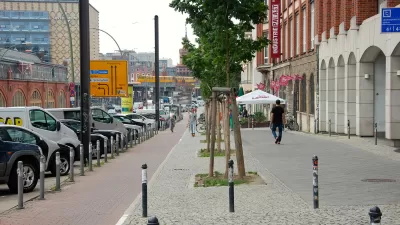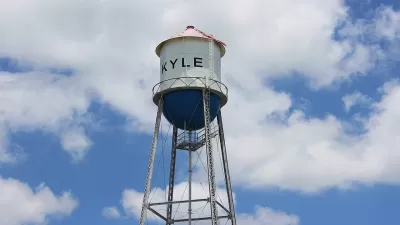The Federal Highway Administration (FHWA) made official a set of rule changes that overthrow an old way of thinking about street design.

"We probably haven’t seen the last of engineers who insist on designing local streets like surface highways. But at least now they can’t claim their hands are tied by federal regulations," according to an article by Angie Schmitt. That conclusion follows an action by the Federal Highway Administration to remove 11 or 13 existing design rules for national highways, which Schmitt defines as "a 230,000-mile network of roads that includes many urban streets."
Here, Schmitt summarizes the effect of the rule changes:
The rule change eliminates a major obstacle to safe street design around the country. The old rules applied highways design standards — wide lanes, no trees — to streets that function more like main streets, with terrible consequences for safety and walkability.
Schmitt reported on the first hints that the FHWA would change the design rules back in October, but the latest news means the changes are official. May seems to be a productive month for the FHWA, which announced the release of a design guide for separated bike lanes almost exactly a year ago, in May of 2015.
FULL STORY: It Just Got Easier for Cities to Design Walkable, Bikeable Streets

Planetizen Federal Action Tracker
A weekly monitor of how Trump’s orders and actions are impacting planners and planning in America.

Restaurant Patios Were a Pandemic Win — Why Were They so Hard to Keep?
Social distancing requirements and changes in travel patterns prompted cities to pilot new uses for street and sidewalk space. Then it got complicated.

Map: Where Senate Republicans Want to Sell Your Public Lands
For public land advocates, the Senate Republicans’ proposal to sell millions of acres of public land in the West is “the biggest fight of their careers.”

Maui's Vacation Rental Debate Turns Ugly
Verbal attacks, misinformation campaigns and fistfights plague a high-stakes debate to convert thousands of vacation rentals into long-term housing.

San Francisco Suspends Traffic Calming Amidst Record Deaths
Citing “a challenging fiscal landscape,” the city will cease the program on the heels of 42 traffic deaths, including 24 pedestrians.

California Homeless Arrests, Citations Spike After Ruling
An investigation reveals that anti-homeless actions increased up to 500% after Grants Pass v. Johnson — even in cities claiming no policy change.
Urban Design for Planners 1: Software Tools
This six-course series explores essential urban design concepts using open source software and equips planners with the tools they need to participate fully in the urban design process.
Planning for Universal Design
Learn the tools for implementing Universal Design in planning regulations.
Heyer Gruel & Associates PA
JM Goldson LLC
Custer County Colorado
City of Camden Redevelopment Agency
City of Astoria
Transportation Research & Education Center (TREC) at Portland State University
Camden Redevelopment Agency
City of Claremont
Municipality of Princeton (NJ)





























